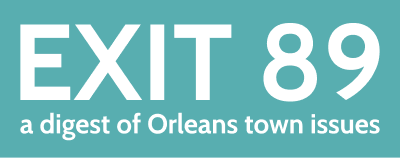It’s that time of year again. Chilly mornings, changing leaves, the tang of woodsmoke in the air…and yup, you guessed it: it’s ORLEANS SPECIAL TOWN MEETING season.
On Monday, October 17, at 6 PM, in the Nauset Regional Middle School Gym, Orleans voters will consider thirty-six articles. Eighteen are about money – our money – and how we want the town to spend it. The rest are business and policy decisions, plus some housekeeping.
We hope you are planning to attend. If not, EXIT 89 encourages you to reconsider. Town Meeting only happens once or twice a year; it’s a rare opportunity, and a privilege, to participate in the time-honored New England tradition that Henry David Thoreau described as “the true Congress, and the most respectable one that is ever assembled in the United States.”
You can help to shape the future of Orleans — and make decisions that will impact our daily lives and the lives of generations to come.
Childcare for kids ages three and older will start at 5:45. There will be a separate room for those who would like a little space for social distancing. Arrive early (doors open at 5 PM) if you want some time to get settled. Consider bringing water, snacks, or perhaps a friend — someone who’s curious about Town Meeting but has never attended.
Click here for the warrant or grab a real-world paper copy in the foyer of Town Hall.
What’s on the agenda?
Police and Fire Department salaries. An upgrade to the Orleans Elementary School. A new registration program for short-term rentals. A petition to allow Orleans to limit fertilizer use to protect our waters. It’s a relatively short warrant, but some of the terms and funding strategies can be a little mystifying for those of us without a finance background. Like, what the heck is “Free Cash?”
Stick around. EXIT 89's got you covered.
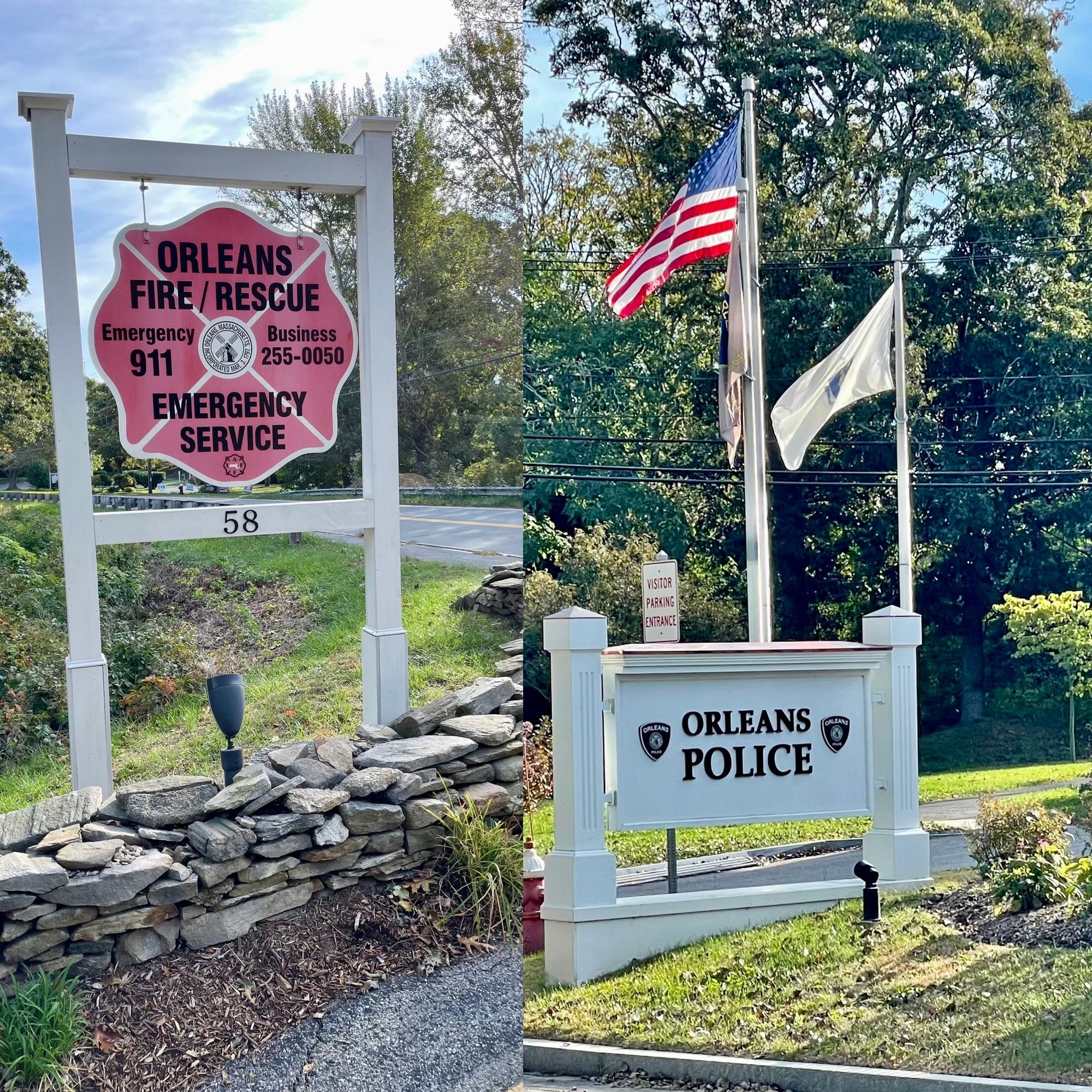
Articles 2+3: Police and Firefighter Contracts
We live in an expensive, remote place with an extremely competitive job market for police, paramedics and firefighters. Many Cape Cod towns are short-staffed on first responders. To ensure that Orleans is able to hire and retain qualified individuals in its Police and Fire Departments, new three-year contracts were negotiated with and signed by their unions and approved by the Select Board for the period of July 1, 2022 to June 30, 2025.
Funding Details: Our FY23 budget already included a 3% increase for both Police and Fire Department contracts. The new contracts reflect that increase, along with additional agreements that would increase the budgets by a projected total of 18% or $165,000 for the Police Department and 16% or $304,000 for the Firefighters over the coming three years, beginning with FY23.
Articles 2 + 3 were supported unanimously by the Select Board and Finance Committee. A simple majority is required to pass each. Both of these addendum agreements are subject to general overrides; if they pass at Town Meeting, they’ll be on the Special Election ballot on December 6th. (For an explanation of “general overrides,” see page 9 of the Warrant.)

Articles 5-15: Free Cash!
Articles 5-15 are all one-time expenses. If passed, they’d be funded from a pot of Town money called “Free Cash.”
Sounds pretty good, doesn’t it? FREE CASH,Yippee! But some of you might be wondering what it’s doing in a town budget — and why does Orleans have such a sizable supply of it right now?
In a nutshell: “Free Cash” describes funds left over from the previous fiscal year that are not “restricted” for specific purposes. (A more detailed definition of this term is offered on page 8 of the Warrant — along with definitions of many other municipal finance terms – if that’s your thing.) Free Cash funds include tax revenue that exceeded estimates, unspent budget line-item amounts, and unspent Free Cash from the previous year. Certain expenses, such as unpaid property taxes and other deficits, are subtracted automatically from each year’s Free Cash total.
The bottom line of the bottom line? Our operating costs in FY22 were lower than expected and our tax revenue was higher. Currently we have an excess — about $2.3 million in Free Cash — mostly due to more than anticipated property tax and non-property tax revenue, and budget “turn-backs” for line-items such as unfilled staff positions, higher than expected state reimbursements for healthcare and veterans’ benefits, and less snow removal than budgeted.
Town Policy dictates that Free Cash can only be used for non-recurring purposes, including the replenishing of reserves. This would include capital projects and one-time expenses, but not annual or ongoing costs, like salaries. When an expense is paid from Free Cash, it does not require a general override.
What’s being proposed for Free Cash funding this Fall?
Here are some highlights:
Articles 5 + 6 are essentially housekeeping issues, paying bills from prior years and funding unanticipated employee buyouts. Article 7 asks voters to fund a new HVAC system for the K–2 wing of the elementary school instead of issuing more debt (more about that in a minute); Article 8 would fund replacements for Rock Harbor fuel tanks; Article 9 funds a required compensation study for several unionized town jobs. Article 10 funds a search for a new Town Manager; Article 11, pays for an “economic value study” of Rock Harbor and Nauset Harbor, a follow-up to the 2022 Economic Development Plan, with the findings used to help the Town secure grants for infrastructure improvements. Article 14, likely to be the subject of a spirited discussion at Town Meeting, funds a proposed parking program for Rock Harbor, which we’ll tell you about shortly. Article 15 proposes transferring $75,000 from Free Cash to secure and insure the former Governor Prence properties.
If these articles are all approved, there will be a balance of $545,000 in the Free Cash account — available for other capital or one-time expenses in May, at the Annual Town Meeting.
Clamoring to know more about municipal finance? You’re in luck! You can attend a workshop – the first of a new series being offered, Orleans Finances 101. Join by Zoom, or attend in person in the Nauset Room of Town Hall on Oct. 12 from 5–6 PM.
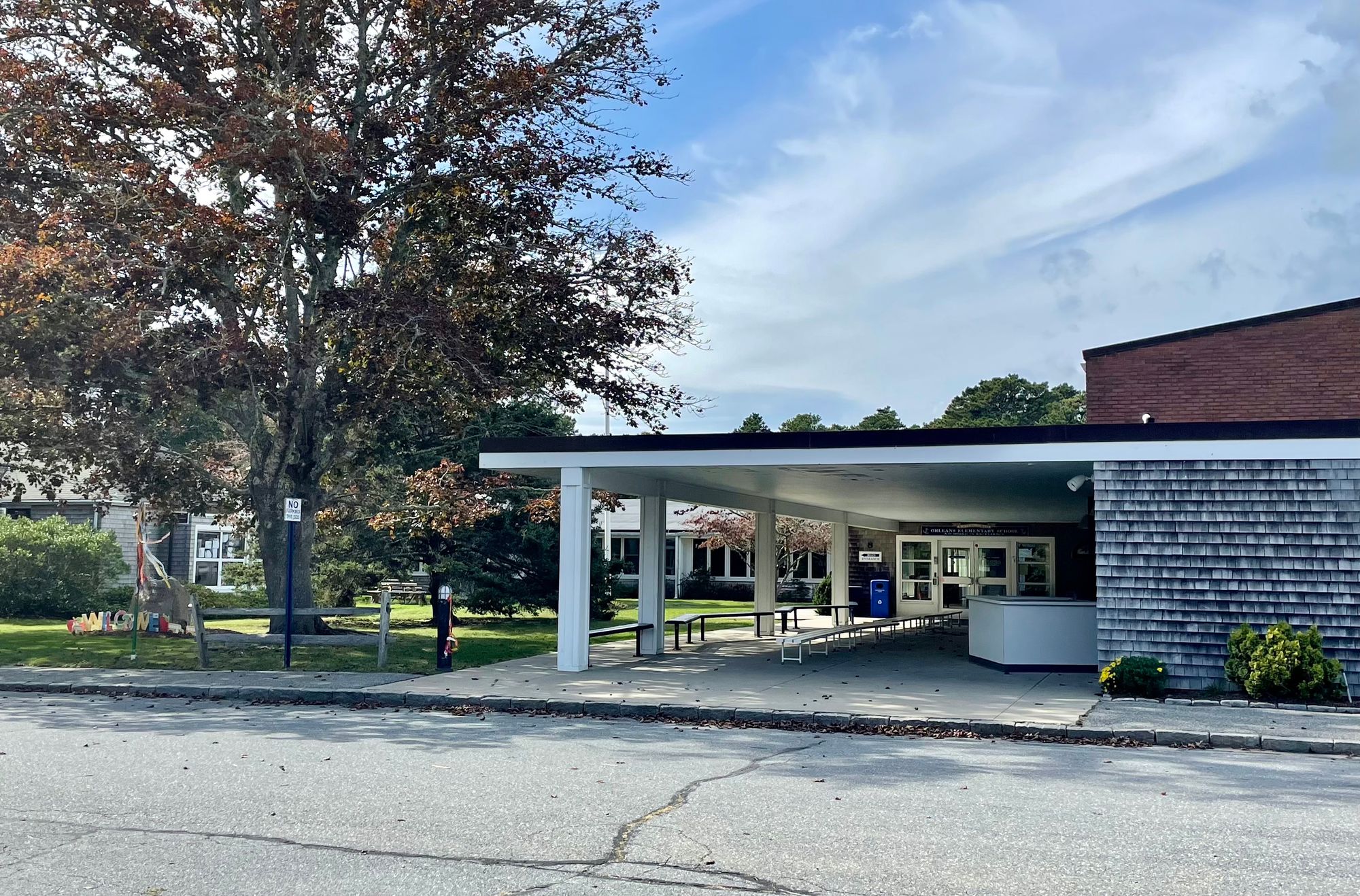
Article 7: New HVAC for Orleans Elementary School
Orleans Elementary School was first built in 1956. It needs maintenance and updates, some more urgent than others.
Question: Do we continue to repair and maintain a building with sections that are 40 and 60 years old? Would it be smarter to consider a new building?
Windows and roofs are one urgent need. HVAC in the 1988 wing, which includes K–2 classrooms and the school library, is another. Problem is, the cost of doing all of these updates ($3.1 million) would trigger a state-mandated Architectural Access Board (AAB) assessment, which would trigger another round of required improvements.
The School Committee has decided to put the windows and roofs on hold, proceed with the more urgent HVAC fixes, and enlist a qualified firm to assess the school’s accessibility issues and its overall viability going forward, with the goal of developing a long-term campus-wide capital improvement plan.
Both the Orleans Select Board and Finance Committee voted unanimously to recommend this article. And since it’s not included in the Town’s five-year Capital Improvements Plan, it requires a three-quarters vote to pass.
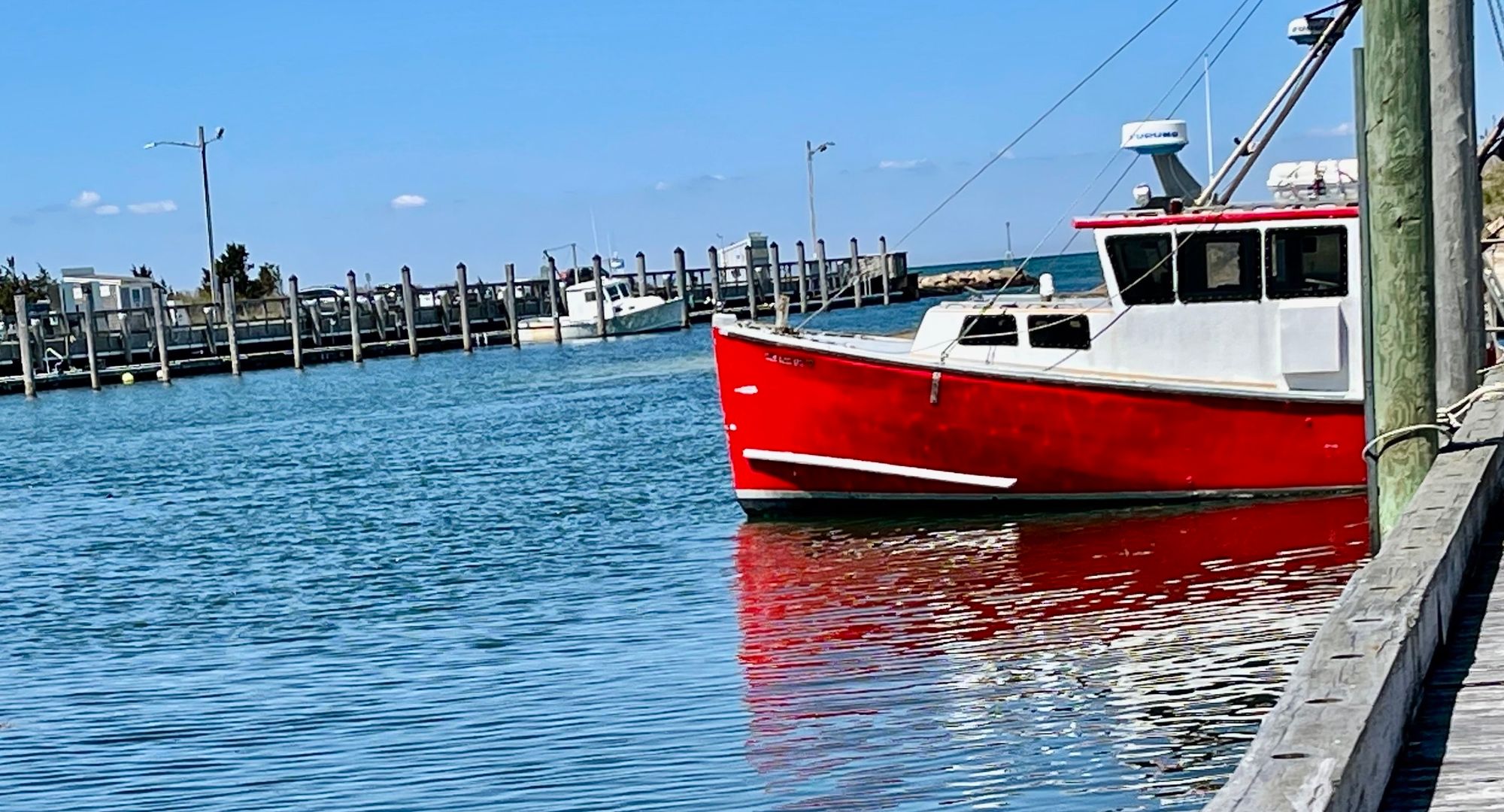
Article 14: Rock Harbor Parking Fees
In order to defray some of the costs of Rock Harbor operations, currently subsidized by Orleans taxpayers, this proposal would charge non-residents to park there – $15 per day for non-residents, and $30 per season for non-resident commercial or charter boat crew members.
Charter boat captains, concerned that fees could deter potential clients from taking charter trips — or even from just driving into the lot to inquire about them — voiced their opposition recently in the Cape Cod Chronicle. While the details are yet to be worked out, parking would stay free for those with Orleans resident beach stickers, and for everyone after working hours. (Sunset-watching will still be free.)
The article asks voters to approve transferring $32,500 from Free Cash to fund the new program, which would use a smartphone app to help monitor parking activity.
The Orleans Select Board unanimously recommended the article (5-0) and the Finance Committee heartily did not (2-6). It requires a simple majority vote to pass.
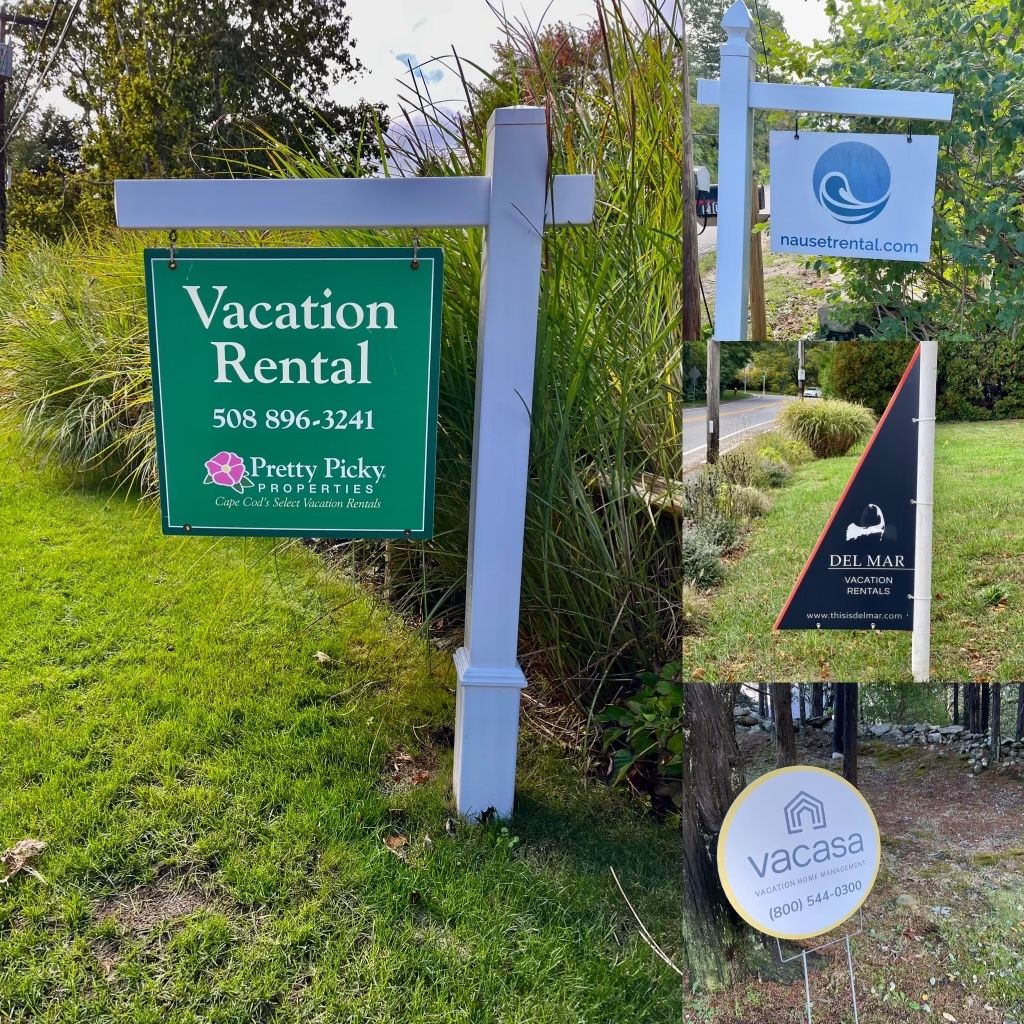
Article 19: Registering Short-Term Rentals
In Orleans, a “short-term rental” is defined as any property leased for fewer than 31 consecutive days. According to the State, we currently have over 700 of them in town.
Article 19 proposes that every short-term rental property owner be required to register these properties with the Board of Health by 1) filling out an application and 2) paying a registration fee. The application, submitted annually, would require contact information for the owner, acknowledgement of all pertinent local and state laws, codes and regulations, and the phone number of the owner or owner’s agent who agrees to be available for contact 24/7 by occupants or the Board of Health, the Orleans Police Department and the Orleans Fire Department, if necessary. The registration fee would be $50 per short-term rental, plus another $50 for each additional bedroom over two.
Other new requirements include weekly trash removal and occupancy limits (two occupants per bedroom, plus an extra two per house), parking restrictions (parking allowed on the property only), and fines for violations of any of the rules.
The Select Board voted unanimously to recommend the new requirements, while the Finance Committee voted not to recommend (1-5), with 2 abstentions, arguing that the issues around short-term rentals should be studied before enacting new by-laws, that the proposed by-law’s details — like how it will be funded in the future, and who would enforce it — are unclear. There is also concern that the new rules and fees would most negatively impact the property owners who need rental income the most. It requires a simple majority vote to pass.

Articles 21-31: Home Rule Charter Amendments
Orleans has a hardworking Home Rule Charter Committee that is carefully looking at ways to update and improve our Charter with amendments. As EXIT 89 explained last spring, the term “home rule” refers to the limited autonomy granted a local jurisdiction, like the Town of Orleans, that allows us to create our own bylaws and rules within our borders. Our Town Charter is effectively our Constitution.
The committee’s recommended changes concern the language used to describe our process of government, the purpose of the Charter, the Charter operations and maintenance, as well as the defined scope of the Town Manager’s appointments, the moderator’s designations, as well as the duties, makeup and succession policies of the Finance Committee.
Nine of these recommended changes are supported unanimously by the Select Board. (The Finance Committee does not vote in matters that have no significant fiscal implication.) Two changes were not recommended by the Select Board or Finance Committee: Article 23, which would institute a Code of Conduct for all Town Officers, committee members, and citizens, when conducting town business; Article 26, which proposes to have the Town Accountant/Director of Municipal Finance appointed by the Town Administrator/Town Manager instead of by the Select Board. (EXIT 89 has just heard that this last article may be indefinitely postponed.)
A two-thirds vote is required to pass each of the Home Rule Charter amendments.

Article 32: Goodbye, ChemLawn, Hello, "Cape Cod Lawns"?
Orleans has a lot of water – 63 ponds/lakes and about 50 miles of shoreline – and it’s not doing well. All of our water – fresh, salt, and everything in between – is degraded, and science attributes much of the problem to excess nitrogen and phosphorus. Septic systems are a major contributor, but nitrogen and phosphorus also come from lawn and garden fertilizers. These products, when applied to lawns, gardens, grounds, and golf courses all over the Cape, travel easily through the region’s unique, sandy soil, and flow into our estuaries, ponds, and bays, contributing to nasty – and sometimes harmful – algae and aquatic plant growth, which contaminate our waters. In short, excess nutrients are putting our health, our quality of life, and our town’s economic vitality in peril.
Article 32 is a Home Rule Petition, which means the Town of Orleans is requesting a specific power from the state legislature. In this case, we are asking the state for the authority to enact our own laws regarding the application (not sale) of garden fertilizers in Orleans. (A similar restriction on fertilizer was approved in Nantucket in May — and is under consideration in other Cape towns.) Commercial agriculture operations would still be allowed to apply fertilizer, and residential property owners could still use organic fertilizer that has minimal and/or slow-release phosphorus and nitrogen, but only for growing fruits and vegetables. All other uses would be prohibited.
In a presentation about the potential ban to the Select Board, Michael Herman, a board member as well as a local organic farmer, emphasized that the petition is the beginning of a process, not the end. The specifics, including exactly how a ban would be enforced, still need to be worked out.
You can read more here.
Some local businesses that sell fertilizers, and some landscapers who apply it, have asked the Select Board to move carefully, warning that the proposed regulations could have unintended consequences. The Select Board voted unanimously to support Article 32 while the Finance Committee voted (1-7) against support with one abstention. It requires a simple majority vote to pass.
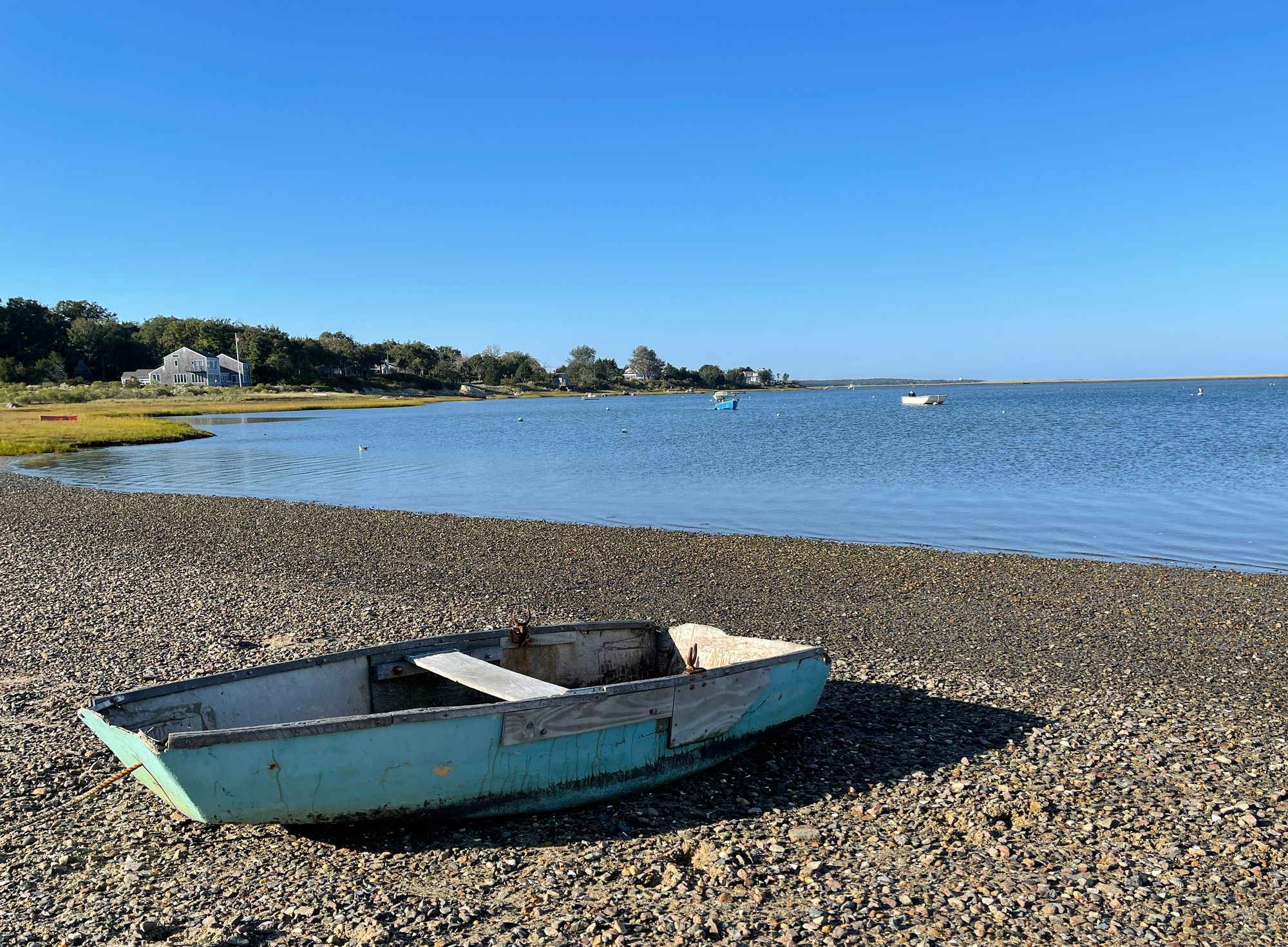
And Vote Again:
There will be a Special Annual election on Tuesday, December 6, between 7 AM and 8 PM, at the Council on Aging Senior Center, 150 Rock Harbor Road, to vote on questions requiring a ballot vote.
EXIT 89 will send a reminder.

EXIT 89 is researched and written by journalists and authors Martha Sherrill and Emily Miller. Editing and tech support is provided by Kazmira Nedeau. The Advisory Board currently includes Lynn Bruneau and Elaine Baird. We are all residents of Orleans.
Thank you for all the great feedback about our last issue, on shoreline access. We have new subscribers every day and are thrilled to be meeting a need.
Our next issue will be a recap of Town Meeting, along with updates on local projects – plans for Governor Prence, the Underground Mall housing development, sewering tie-ins and payment policies, “Pay As You Throw” fees at the Transfer Station, and the Nauset Regional High School renovation.
If you have thoughts about subjects you’d like EXIT 89 to cover in the future — Orleans issues that don’t make sense to you, or seem underreported by the local press — please drop us a line at hello@exit89.org.
See you at Town Meeting!
